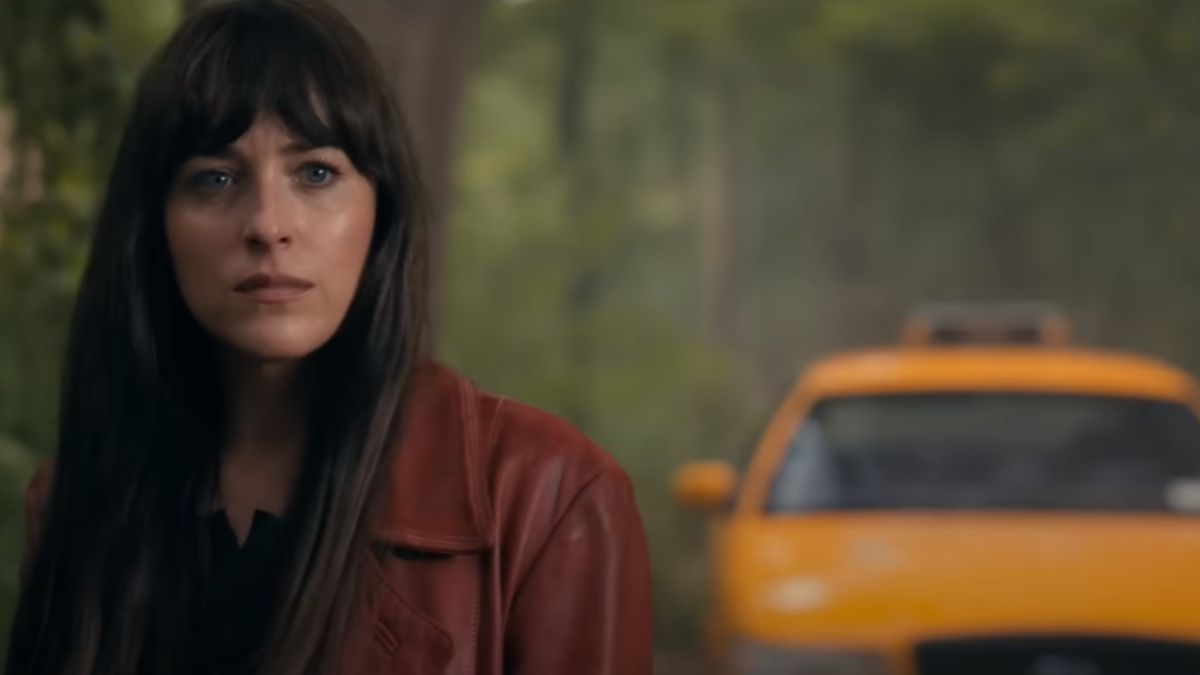Superhero movies have dominated the cinematic landscape for the better part of two decades now and consistently generate some of the most popular franchises. They are so dominant and historically commercially successful that filmmakers like Martin Scorsese claim they are destroying cinema and preventing artists from taking risks.
But nowadays superhero movies are increasingly struggling. Just look at Sony Pictures’ recently released “Madame Web,” which is shaping up to be one of the biggest flops of the superhero genre. It is a prime example of all the reasons why superhero movies no longer resonate with audiences.
“Madame Web” follows a woman named Cassie Webb, who suddenly develops superpowers that give her visions of the future, as she tries to save three teenage girls from a man seeking to kill them.
Storytelling Has Lost Touch With Reality
Superhero movies have gone from being about the real world to being about superhero movies. This genre became popular back when mainstream moviegoers didn’t particularly care about superheroes. Earlier comic-book adaptations posed themselves as giving real answers to the audience’s real-life questions.
Previously, most superhero movies showed a world where ordinary people struggled against poverty and crime (“Spider-Man,” “Batman Begins”) terrorism and politics (“The Dark Knight,” “Iron Man”), and bigotry (“X-Men”).
These earlier superhero movies took the ordinary world and people’s questions about how to respond to injustice and showed how an otherwise normal person would respond to it. These messages inspired and resonated with audiences around the world, just like lifelong New Yorkers could resonate with the day-to-day struggles of Peter Parker. Superheroes were an answer to evil: Use whatever power you have to stand up to it.
Today, most films of this genre don’t spend time in the real world and hardly, if at all, deal with reality. Instead, they take place in a fantasy world without spending the time trying to make it relatable for the audience. All of these stories are focused on generally unengaging, metanarrative world-building. “Ant-Man and The Wasp: Quantamania” builds off events from “Avengers: Endgame” and only serves to push along the Marvel Cinematic Universe (MCU). “Doctor Strange and The Multiverse of Madness” spends more time establishing the multiverse and the future ensemble of a developing “Young Avengers” project than it does developing its antagonist’s character arc.
“Madame Web” doesn’t ground its characters or their world in relatable human experiences. Cassie’s extremely pregnant mother is a super-scientist adventurer in the Peruvian Amazon who is rescued just before her death by a secret society of magic spider-people. This society helps her give birth to the film’s protagonist moments before her death. Cassie somehow ends up back in America as a child along with all of her mother’s field notes. None of this is relatable, unlike Sam Raimi’s “Spider-Man,” which spent most of its time showing how Peter’s life parallels our lives in the real world. “Madame Web” spends most of its time making references to other Spider-Man movies that only make sense if you’ve seen other Spider-Man movies, it’s little more than a movie about other movies.
The Market Is Saturated
The superhero film genre is entirely too saturated. One major issue with this is that writers run out of new stories to tell, and the films are only distinguished by their cosmetic differences. Character motivations and storylines overlap entirely too much as a result. “Spider-Man: Across The Spiderverse,” a movie about a young hero trying to break the rules of reality to save a loved one, was released shortly after “The Flash,” a movie about a young hero trying to break the rules of reality to save a loved one, released shortly after “Spider-Man: No Way Home,” a movie about a young hero trying to break the rules of reality to save a loved one.
Further, there comes a point where there is so much superhero content, you just can’t watch them all. This is an issue that even Bob Iger acknowledged with the MCU. There is simply too much content for the average person, let alone the median superhero fan, to consume.
There’s no reason a movie about Madame Web needs to exist. She’s a weird side character in the Spider-Man comics. But studios are committed to squeezing every last cent out of their intellectual property, so this movie got made. Each plot point in the story is a rip-off of a cliche from another superhero movie, from the dead parents to the discovery of powers, to the bickering new partners, to the cheeky references to other comic book stories.
But moviegoers want, and more importantly reward, variety. Just look at the massive success of last year’s “Barbie” and “Oppenheimer.” The former was a whimsical satire while the latter was a dark historical drama. Both blew past expectations to break records with their box-office returns. There is a hunger for something other than superheroes at the multiplex.
Alienating Male Fans
One of the biggest cultural mistakes made by Hollywood in recent years has been to alienate superhero and sci-fi fans by creating the impression that the industry is anti-male. It likely started innocently; after conquering the entire male market with its movies, the studios thought, why not expand our market to the other half of the population and make the movies popular with women too? But studios only alienated male fans without gaining female ones.
Take, for instance, actress Brie Larson’s comments saying she wasn’t interested in white men’s opinions about female-led movies because they are “not made for you.” This alienates a demographic her industry depends on.
Both superhero shows and movies consistently rely on the tired trope of pitting women against men (“She-Hulk”) and depict women as empowered and competent while men appear helpless or in need of redemption (“Captain Marvel” and “Black Widow”). This makes men who already feel like society disproportionately favors women feel like sources of pop-culture comfort are now part of the establishment that hates them.
But as YouTuber Dan Murrel pointed out, nearly every female-led action movie ever made had more men than women in the audience. Movies that heavily on romance, however, naturally attract more women than men. “Madame Web” isn’t particularly anti-male, but it’s still an action movie focused almost entirely on women without a central romance. These creative decisions will affect who goes to see it.
The female characters talk and act like stock stereotypes from male-written action movies who solve all their problems by bickering and punching things — the way men write their heroes. Contrast that with female-written and beloved movies like “Frozen” and “Barbie,” where heroes win the day through emotional intelligence and empathy. Trying to shoehorn female characters into typically male roles simply doesn’t work; audiences reject it.
Superhero Movies Could Make a Comeback
While superhero movies are struggling right now, there’s reason to believe they will remain one of Hollywood’s most popular genres. The recent Superbowl trailer for “Deadpool and Wolverine” is the most-watched trailer of all time. James Gunn, one of the genre’s better directors, recently found himself in charge of Warner Brother’s DC Studios, and his upcoming “Superman: Legacy” is already hotly anticipated.
Audiences clearly want more of this genre, but they are tired of stale, out-of-touch storytelling. The problems these movies face are different than what they faced in the 2000s when the genre first became popular.
Moviegoers want stories that look at the world they’re living in and show how they can overcome their daily struggles by emulating the virtues of those they see on screen. By taking responsibility and stepping up to the challenge, you can be the answer to the problems you see. We need more movies like that.









